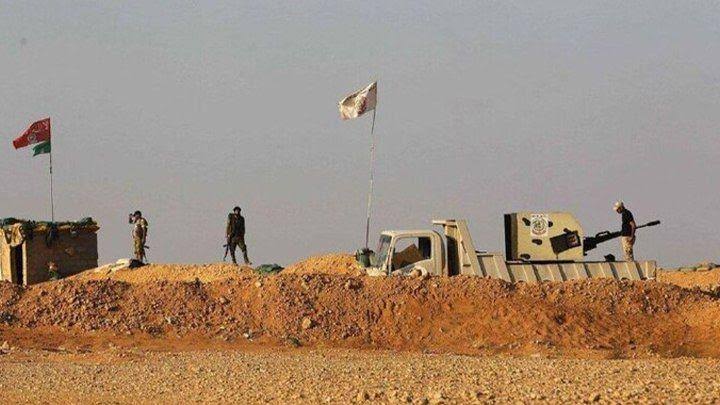Al-Mayadeen countryside | Iranians and loyal militias seize 150 farms, turning them into military positions, and prevent people from approaching
Pro-Iranian militias continue to seize properties belonging to civilians, who had been displaced from their areas for years, to escape airstrikes targeting their military gatherings, where repositioning has become a priority for these militias to maintain their military equipment in the region.
In this context, SOHR sources say that the leadership of the Iranian militias seized the entire area of the farms in the countryside of Deir ez-Zor, which is located 20 km west of the city, including 150 palm and olive plantations owned by the residents of Al-Mayadeen and its villages, which have been converted into a closed military zone that is forbidden to approach.
Iranian militias have erected a soil fence throughout the area, and brought in prefabricated rooms and water tanks and placed them on farms.
They also began to build a mosque to call for Shiite prayer, and huge concrete buildings in the centre of the region. The Iranian militia leadership divided the farms area into sectors and each sector is owned by a faction of Iranian militias, where the southern sector was the share of the Afghan “Fatimiyoun Brigade” militia. The northern sector for the Pakistani “Zainbyon” militia, the eastern sector for the “Iraqi Popular Mobilization” militia, while the western sector was the share of local militias from local villages belonging to the Iranian Revolutionary Guard.
SOHR sources have confirmed that Iranian multinational militias have reinforced their new positions, by bringing in heavy vehicles and weapons from different areas in the city of Deir ez-Zor and its countryside.
They also opened camps for physical and ideological preparation, to recruit new members from the region and those coming across Iraq’s land borders.
Meanwhile, Iranian militias continue to prevent the region’s residents and farmers from doing their work and saving the remaining fruit trees that are now near and within military zones.

